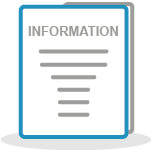There are many different routes which enable people to start a career within the NHS. In NHS Greater Glasgow and Clyde we aim to offer a variety of opportunities. Some will help individuals make career choices by providing an insight into the various roles within our organisation and others will support people to develop knowledge and skills that may assist them into future employment.
Get Ready For…
Medicine 2025 Programme
The programme of activity for Get Ready for Medicine will take place as follows:
January to March – Online evening lecture events and half day careers insight workshops for S5, gap year and access students and postgraduate applicants planning October applications
June to July – NHSGGC will support delivery of Medic Insight Glasgow Programme (please make sure you are following Medic Insight Glasgow social media platforms)
September to October – Online evening lecture events and half day workshops for S6 pupils making applications in October
Applications are now open for Get Ready for Medicine 2025
https://link.webropolsurveys.com/S/9BDB9C1247D558CD (this is the link for the GRfM 2025)
We will also be running an online session (widening access) on Tuesday 19th November for any S2 – S4 pupil who is considering a career as a doctor, applications can be made on the following link:
https://link.webropolsurveys.com/S/0030D09BED94BCAB (this is for the S2 – S4 programme)
NHS Greater Glasgow & Clyde will be running Get Ready for Medicine events for senior phase school pupils, living or studying in our catchment area and planning to apply to medical school through UCAS in October 2025. These events have been designed in collaboration with the University of Glasgow and have replaced traditional “shadowing” for work experience.
This will include:
– In-person workshop events at the NHS Scotland Skills and Simulation Centre in Glasgow.
These will give experience of medical school style tutorials, ethics discussions and some practical sessions such as blood-taking on manikins and basic life support.
– An online lecture evening “Speed through the Specialities”
– Face-to-Face Work Experience Workshops: Get Ready for Medicine
This event open to senior phase pupils who are applying to medical school next October who hasn’t previously attended a GRfM workshop event.
Please see the following new NHS guidance:
Your Med Future | NHSScotland Careers
We would also advise to make sure you have a look at the information below for the Reach Programme and Medic Insight Glasgow Programme. Also make sure are following Medic Insight Glasgow social media platforms (i.e. Facebook) for the Medic Insight Glasgow Programme and some Guidance for aspiring doctors from current medical students.
_________________________________________________________________________________________
This event is open to anyone who is applying to medical school next October who hasn’t previously attended a GRfM workshop event.
We would also advise you to look at the information below for the Reach Programme and Medic Insight Glasgow Programme. Also make sure you are following Medic Insight Glasgow social media platforms ( ie Facebook) for the Medic Insight Glasgow Programme and some Guidance for aspiring doctors from current medical students. See more details below:
Medic Insight Glasgow – YouTube
Other Resources
You can visit the Becoming a Doctor webpage and YouCanBeADoctor to view content that may help you gain insight and support your application to study medicine.
Read what the Medical Schools Council advises on the type of work experience needed to support your application to study Medicine. You should also visit the entry requirement pages of the university you wish to apply to for detailed information about the application process.
Please Click Here for more information regarding Get Ready For Medicine Programme.
Thinking about becoming a doctor in the NHS in Scotland?
_______________________________________________________________________________________________
S2 – S4 Video for Get Ready for Medicine
*** New Video for S2 – S4 Is Medicine for me ***
NHSGGC – How to get into Medical School and what help is available?
*** New Video NHSGGC – How to get into Medical School and what help is available? ***
_______________________________________________________________________________________________
***Please note that NHSGGC does not host “Shadowing” within a number of professions including Medicine. All requests for careers insight, to source placements or support self found placements for Medicine will be re directed to the Get Ready for Medicine Programme.***
Nursing – 2025 Programme
The NHSGGC Get Ready for Nursing Programme is a 1 day face to face programme delivered by NHS and Educational Professionals to support your UCAS application to study Nursing or Midwifery.
This is only open to senior phase pupils (S5/S6) on track and with an intention to pursue a career in Nursing. Priority for places to those submitting an application via UCAS for enrolment in the next academic year.
This programme will run on 3 separate dates (16th, 17th & 19th June). Applicants are only required to attend one session and will be asked to select a preferred date.
The Get Ready for Nursing Programme has been postponed until later in the year. Any applications do not need to be resubmitted and we are still taking new applications. Further clarity of dates to follow.
The programme delivered by NHSGGC Nursing Staff and colleagues form Universities and Colleges.
Activities include:
Discussion workshops hosted by Nursing and University/College Admissions teams:
- the application process for Nursing and Midwifery
- life as a Student
- life as a Nurse or Midwife
- Career Pathways within Nursing
Click here to find out more about Nursing Professions or visit https://www.careers.nhs.scot/careers/explore-our-careers/nursing/
Applications for our June 2025 programme are now open.
Use the below weblink to submit your application
https://link.webropolsurveys.com/S/5F933809457D3D6B
Thinking of Studying Midwifery?
Click here to find out more about Midwifery as a profession or visit https://www.careers.nhs.scot/careers/explore-our-careers/midwifery/
Physiotherapy – 2025 Programme
NHS Greater Glasgow & Clyde are running Get Ready for Physiotherapy events for all school pupils, school leavers, gap year students and postgraduates living or studying in our catchment area and planning to apply to Physiotherapy courses through UCAS in 2025. These events have been designed to replaced traditional “shadowing” for work experience.
The intention is to deliver a meaningful programme of activity that will give participants more to speak about within your application and at interview.
The programme delivered by NHSGGC Newly Qualified and Experienced Physiotherapy staff.
Activities include:
Discussion workshops that include
- the application process for Physiotherapy
- life as a Student
- life as a Physiotherapist
- career pathways within Physiotherapy
Dates:
This will include 2 virtual sessions each year:
- 1st on 26/3/25 from 0900-1500
- 2nd date TBC
This has replaced the in person sessions. The content of these sessions will include advice on entry requirements and presentations from different areas of physiotherapy. This event open to anyone who is applying to study Physio in October 2025 who hasn’t previously attended a physio placement. We would also advise to make sure you have a look at the information below.
____________________________________________________________________________________________________
*** Applications for 2025 now Closed : Closed Friday 7th March 2025 at 13.00 ***
____________________________________________________________________________________________________
Click Here to find out more about the profession or visit https://www.careers.nhs.scot/careers/explore-our-careers/allied-health-professions/physiotherapist/
Click Here to find out more about other careers in NHS Allied Health Professions or visit https://www.careers.nhs.scot/careers/explore-our-careers/allied-health-professions/
Podiatry 2025 Programme
NHS Greater Glasgow and Clyde Get Ready for Podiatry Programme
Ready to consider the future? Could Podiatry be the career for you?
Stay curious and join us on the NHS Greater Glasgow and Clyde Get Ready for Podiatry programme to find out more.
The NHS Greater Glasgow and Clyde Get Ready for Podiatry programme is a timetabled opportunity delivered by the NHS Greater Glasgow and Clyde Podiatry Service in collaboration with Higher Education Institutions and offers a hybrid experience to explore Podiatry as a profession.
This programme will offer a unique work experience opportunity for all who are considering Podiatry as a career option whether this be as a qualified podiatrist returning to practice, a school leaver or mature student
The programme will be delivered in 2 parts with the online element on 20th March & the in-person element between the 24th – 28th March in half day sessions (successful candidates will be allocated a half day slot on one of the dates for the in-person session)
Within this opportunity we will offer a virtual session to explore the following:
The podiatry profession
Podiatry in NHS Greater Glasgow and Clyde
Guidance on routes of access to Podiatry courses
We will also offer in person work experience in NHS Greater Glasgow and Clyde including the following:
Experience of clinical environment
Observation of patient care delivery
Observation of the use of podiatric equipment
Click here to find out more about the podiatry profession or visit https://www.careers.nhs.scot/careers/explore-our-careers/allied-health-professions/podiatrist/
____________________________________________________________________________________________________
*** Applications for 2025 now Closed : Closed Friday 7th March 2025 at 13.00 ***
____________________________________________________________________________________________________
_________________________________________________________________________________________________________
Other Pathways
Senior Phase Pupils/Adults – Self Found if no Get Ready Programme
If there is no Get Ready Programme covering your field of interest then applicants are required to source placements by themselves i.e. we do not match applicants to host supervisors. A request for this type of placement should be made directly to the department of interest who will negotiate the content and length of the placement. If a placement can be accommodated the host department will contact the Learning and Education team to confirm the arrangements.
Once you have identified a department and host supervisor you should complete the Self-Found Placement Request
In order to access a placement within NHSGGC (even if you have identified a host department by yourself) pupils must complete the Self-Found Placement Request.
The NHS GGC supervisor will then confirm the placement by complete the Supervisor Confirmation Form. By completing these form you are agreeing that the placement will commence.
If you have any enquiries in relation to your request please contact us at email: ggc.earlycareers@ggc.scot.nhs.uk
Visiting Electives Programme/Internships
Please note that medical students interested in applying for an elective placement should link directly with the University of Glasgow as follows:
University of Glasgow
Wolfson Medical School Building
University Avenue
Glasgow, G12 8QQ
Tel +44 (0) 141 330 8023 For the information on University of Glasgow the Visiting Electives Programme, please click here .
http://www.gla.ac.uk/schools/medicine/mus/visitingelectives/#/generalapplicationinformation,howtoapply,conta
____________________________________________________________________________________________
Please note that the Early Careers Team does not deal with
Please use the links for more information on these areas.
Administration Career pathway Toolkit
The Career & Education Pathway Toolkit is a visual guide that help identify the relevant requirements for each admin post within PAT (Professional Administration Transformation) admin family. Covering from modern apprentice through each of the bandings up to senior management levels. It can help with career progression or upskilling in your current role.
Other Resources
If you are a school leaver, please visit the DYW Skills Academyopens a new window to see the offer of online events to support you moving into work.
The My World of Work websiteopens a new window has a range of resources and career learning opportunities for over 2000 young people.
NHS Scotland Careers
Explore the exciting, challenging and rewarding career opportunities in the NHS in Scotlandopens a new window
Young People’s Mental Health
With everything going on right now, it’s more important than ever to stay connected and carry on talking about mental health.
The Seeme Scotland websiteopens a new window has a range of resources you can access.
Young Scotopens a new window is Scotland’s National Youth Information Service and have a range of activities and resources you can access.
_________________________________________________________________________________________________________
Main workstreams
________________________________________________________________________________________________________
Contact the Employability Team
_________________________________________________________________________________________________________




